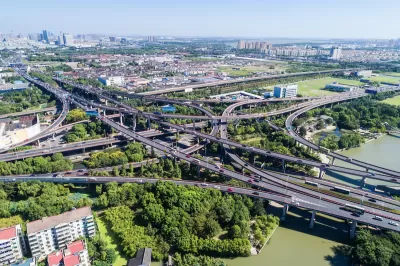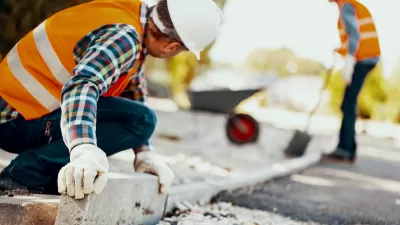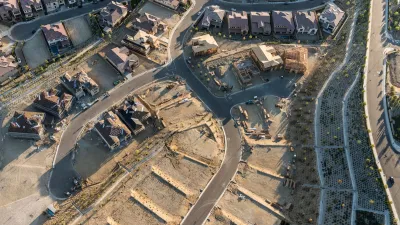The department issued $830 million in grants for improving roads, bridges, and other infrastructure vulnerable to extreme weather and other climate impacts.

A new round of grants from the U.S. Department of Transportation (USDOT) targets projects that build resilience and make transportation infrastructure more resistant to the impacts of climate change, reports Susan Carpenter for Spectrum News. “The grants will go to 80 projects in 39 states, the District of Columbia and the Virgin Islands to address geographically specific issues, including $56 million to build a taller bridge in a flood-prone area of Cedar Rapids, Iowa, and $33 million to install a new drainage and sewer system to protect a subway line in New York City that serves one million riders daily.”
This marks the first time the federal government has partnered with local and state governments to specifically address the resilience of transportation infrastructure. According to the article, “The United States received a C- grade overall on the most recent American Society of Civil Engineers Report Card for America’s Infrastructure. While rail received a B, bridges received a C, roads and dams received a D and transit received a D-.”
In announcing the grants, U.S. Transportation Secretary Pete Buttigieg said, “It’s not an exaggeration to say that extreme weather driven by climate change is one of the biggest threats to our infrastructure, to quality of life and safety in our community.”
FULL STORY: Transportation Department funds resilience projects in 39 states to battle fires, floods and drought

Alabama: Trump Terminates Settlements for Black Communities Harmed By Raw Sewage
Trump deemed the landmark civil rights agreement “illegal DEI and environmental justice policy.”

Planetizen Federal Action Tracker
A weekly monitor of how Trump’s orders and actions are impacting planners and planning in America.

The 120 Year Old Tiny Home Villages That Sheltered San Francisco’s Earthquake Refugees
More than a century ago, San Francisco mobilized to house thousands of residents displaced by the 1906 earthquake. Could their strategy offer a model for the present?

In Both Crashes and Crime, Public Transportation is Far Safer than Driving
Contrary to popular assumptions, public transportation has far lower crash and crime rates than automobile travel. For safer communities, improve and encourage transit travel.

Report: Zoning Reforms Should Complement Nashville’s Ambitious Transit Plan
Without reform, restrictive zoning codes will limit the impact of the city’s planned transit expansion and could exclude some of the residents who depend on transit the most.

Judge Orders Release of Frozen IRA, IIJA Funding
The decision is a victory for environmental groups who charged that freezing funds for critical infrastructure and disaster response programs caused “real and irreparable harm” to communities.
Urban Design for Planners 1: Software Tools
This six-course series explores essential urban design concepts using open source software and equips planners with the tools they need to participate fully in the urban design process.
Planning for Universal Design
Learn the tools for implementing Universal Design in planning regulations.
Clanton & Associates, Inc.
Jessamine County Fiscal Court
Institute for Housing and Urban Development Studies (IHS)
City of Grandview
Harvard GSD Executive Education
Toledo-Lucas County Plan Commissions
Salt Lake City
NYU Wagner Graduate School of Public Service





























